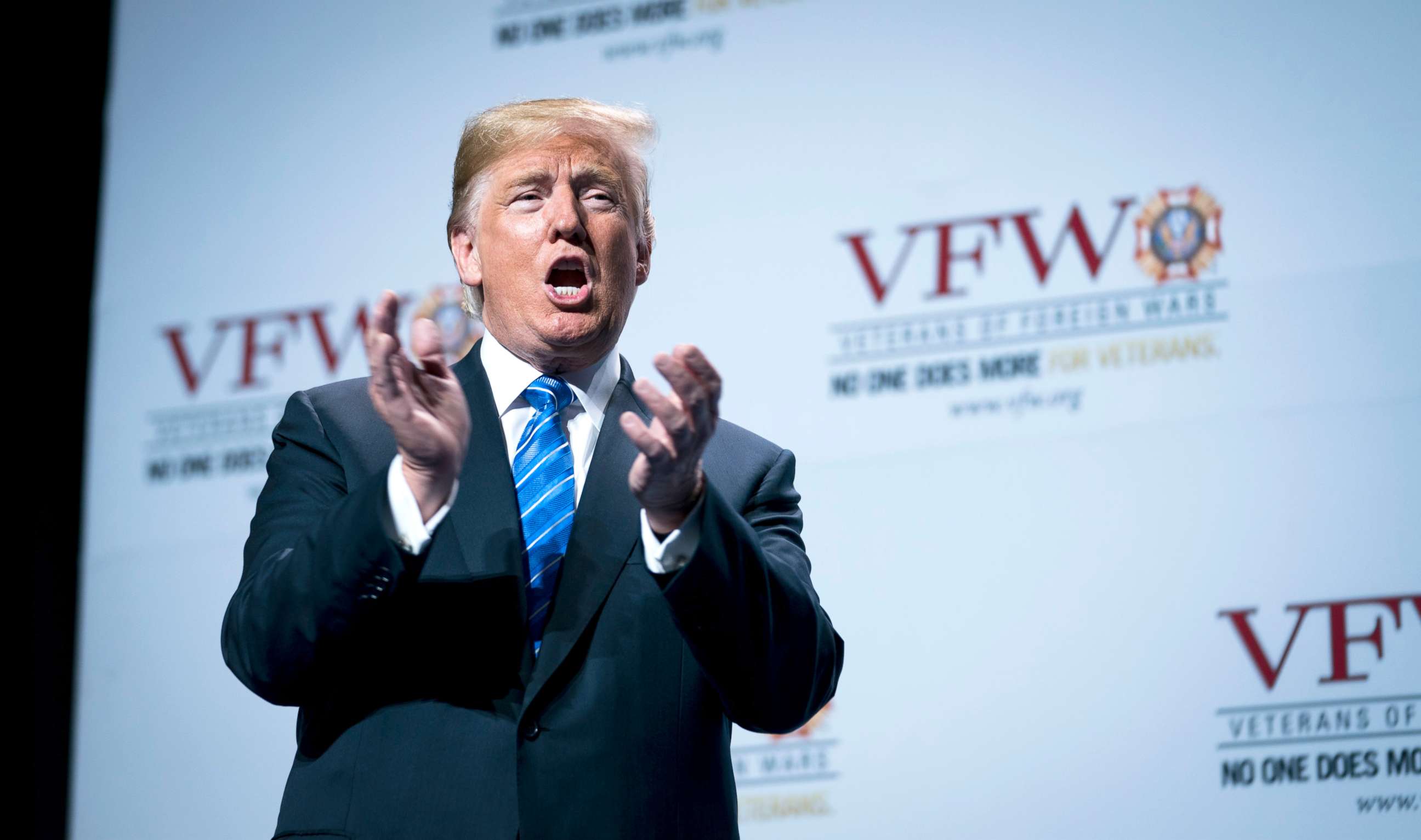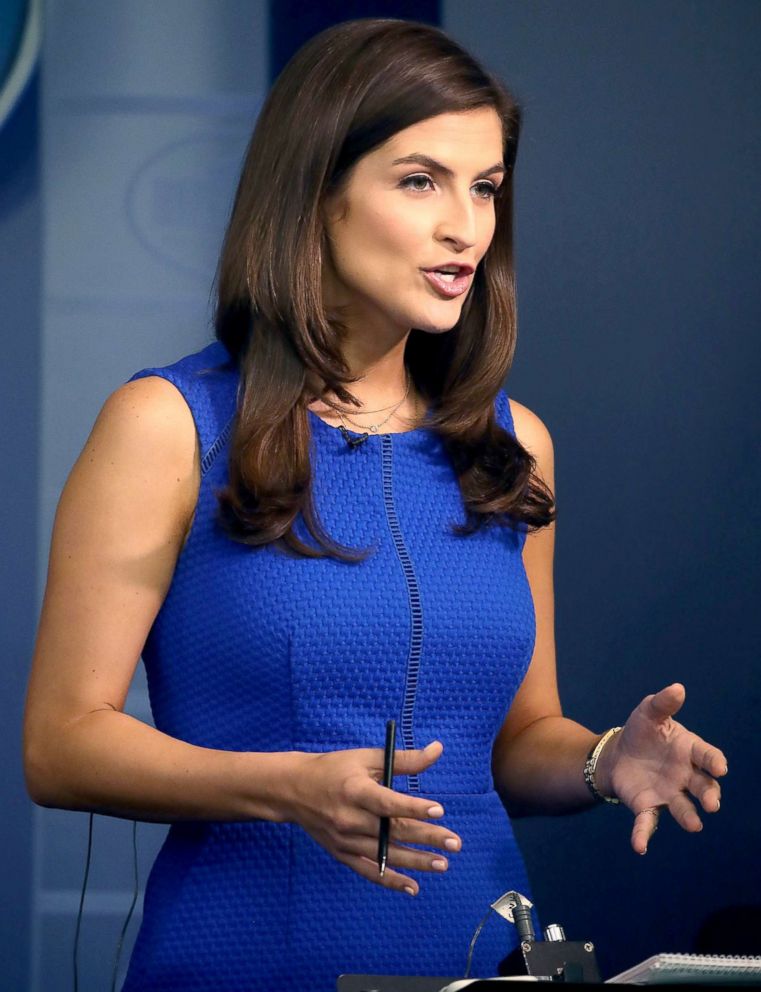More than 300 newspapers join a nationwide effort to publish editorials in response to Trump's attack on media
The Boston Globe proposed a coordinated editorial response to Trump's attacks.
More than 300 newspapers joined a nationwide effort to publish editorials on Thursday pushing back against President Donald Trump’s ramped-up rhetoric against news media.
“This dirty war on the free press must end,” Marjorie Pritchard, the Boston Globe's editorial page deputy managing editor said in a statement obtained by ABC News. “It calls for urgent action by those committed to free speech and the free press to stand against a White House and its allies who are bent on eroding a pillar of an informed democracy.”
The Boston Globe first proposed a coordinated response by editorial boards nationwide last week as the president continues to rail against so-called “fake news” media organizations with claims that the press covers him unfairly.
Publications ranging from the New York Times to smaller regional publications such as the South Bend Tribune are part of the initiative.
“We’re not your enemy. We just want to help make this community stronger. There’s nothing fake about that…,” the South Bend paper's editorial read and listed the staffers who are part of and report on the community.
"Christian Sheckler’s investigative reporting on Elkhart County’s criminal justice system revealed how poor policing led two men to spend years in prison for a crime they didn’t commit, and how prosecutors continued to double down even in the face of new evidence. His work shed new light on a stark example of injustice," the editorial read.
"Christian is not your enemy. He calls himself a “fact-finder,” whose work is meant to “reveal what the truth is.”
Since his inauguration, President Trump has characterized major news organizations as “the enemy of the people”. In a series of tweets on Thursday, Trump repeated the claim and declared "THE FAKE NEWS MEDIA IS THE OPPOSITION PARTY. It is very bad for our Great Country....BUT WE ARE WINNING!" and accused the Boston Globe of collusion. "HONESTY WINS!" the president tweeted.
"Don’t believe the crap you see from these people, the fake news," the president said at the Veterans of Foreign Wars national convention last month. "Just remember, what you're seeing and what you're reading is not what's happening."

First amendment experts have raised concerns over the president’s tone toward the media and worry about the possibility of violence towards the press.
“Because of the power of his authority, just by the nature of the office, [Trump] needs to really consider whether his language has a negative impact on the press,” David Kaye, the U.N. Special Rapporteur on the Promotion and Protection of the Right to Freedom of Opinion and Expression, told ABC News. “At the end of the day, we rely on the press to keep tabs with what’s going on in the government.”
“We should really understand this not just as an attack on specific journalists or outlets but as an attack on the public’s right to know what the government is doing,” Kaye said.
Another expert, however, thinks that the lack of trust that has been present for "quite some time" is a bigger issue than the president's language.
"The lack of trust is a much greater issue and it goes far beyond the president’s trollish remarks about the media," Charles Whitaker, interim dean of Northwestern University's Medill School of Journalism, told ABC News. "The president has been opportunistic in capitalizing on [the distrust] but I don’t think he created this situation."
Whitaker added that "fair, free and robust media environment" is under attack not just by the president but by a business model that is "broken."

The publisher of the New York Times, A.G. Sulzberger, said in a statement to ABC News that he told the president during a meeting with the president last month that his language towards the media is “divisive" and "increasingly dangerous.”
“I told him that although the phrase 'fake news' is untrue and harmful, I am far more concerned about his labeling journalists 'the enemy of the people.' I warned that this inflammatory language is contributing to a rise in threats against journalists and will lead to violence,” Sulzberger said.
The president said he had “a very good and interesting meeting at the White House” with Sulzberger in a tweet.

Last month, a CNN correspondent who was representing a number of networks as a "pool reporter" was “dis-invited” from covering an official White House event after she shouted out what the administration called “inappropriate” questions to the president about his former lawyer Michael Cohen and about a White House invitation to Russian President Vladimir Putin.
The White House Correspondents' Association condemned the administration's action.
"This type of retaliation is wholly inappropriate, wrong-headed, and weak. It cannot stand," WHCA President Olivier Knox said.
And on Thursday, Trump in a tweet accused the Boston Globe of being "in COLLUSION with other papers" to push a false narrative that he is against press freedoms.
Later that day, the Senate passed a Democrat-authored resolution affirming Congress' support of the First Amendment and condemning attacks on the free press by Trump and members of his administration.
Meanwhile, papers participating in the broader editorial effort say it is a way to collectively voice the significance of the freedom of the press.
“Our words will differ," Pritchard said in her statement. "But at least we can agree that such attacks are alarming.”




